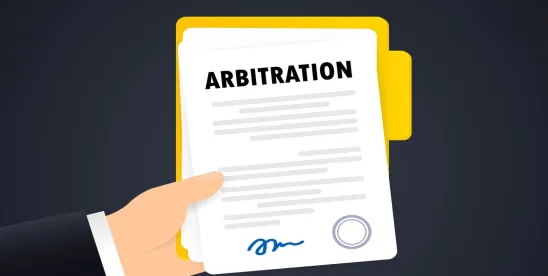When there are two conflicting contracts—one requiring a court to address whether a case should be decided by arbitration or court action, and another requiring an arbitrator to address that issue—who decides which contract controls? On May 23, the US Supreme Court answered this question in Coinbase, Inc v Suski.
In this case, Suski brought putative class claims against Coinbase alleging that a Coinbase-hosted sweepstakes was unlawful. The parties had two contracts: the Coinbase User Agreement and the Official Rules. The User Agreement delegated the question of arbitrability to the arbitrator. But the Official Rules granted California courts sole jurisdiction over any controversy related to the sweepstakes.
In a unanimous opinion authored by Justice Ketanji Brown Jackson, the Court held that the issue of where Suski’s claims belonged—in arbitration or in court—must be resolved by a court, not an arbitrator.
The Court held that the fundamental principle underlying the Federal Arbitration Act is that "arbitration is a matter of contract and consent." Accordingly, courts can send disputes to arbitration only if the parties in fact agreed to arbitrate those disputes. When parties are bound by two contracts that conflict over who decides arbitrability, the question of which contract governs turns on "whether the parties agreed to send the given dispute to arbitration." The Court held that this threshold question "must be answered by a court."
Justice Neil Gorsuch filed a concurring opinion, emphasizing that the Court’s opinion is limited to resolving "who decides" the issue. He noted that the Court continues to recognize that parties can agree to delegation clauses.
The lesson to be learned from this case is clear. For a business that enters multiple contracts with the same party, ensure that your contracts are consistent with respect to the arbitrability of disputes. Inconsistency between contracts on the question of arbitrability could result in protracted litigation on threshold procedural issues, which undermines two of arbitration’s advantages over litigation: quicker resolution and lower cost.





 />i
/>i

